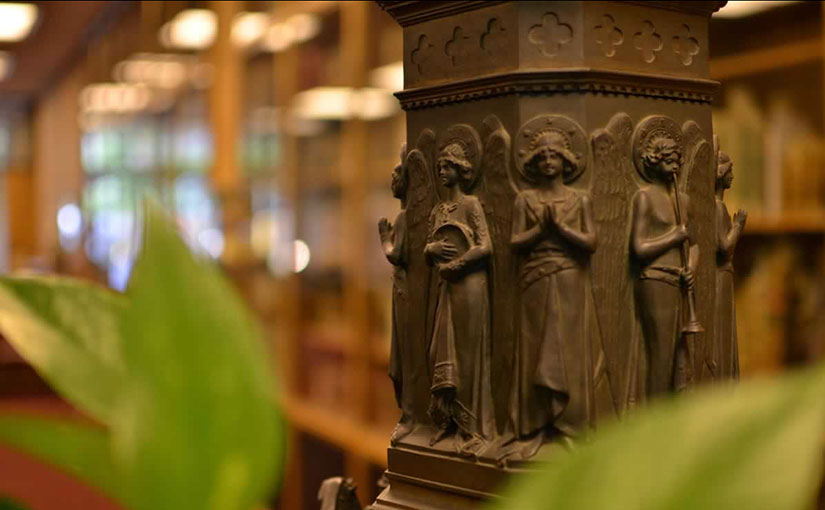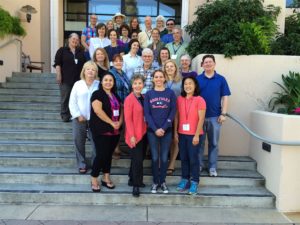 In July, with support from Hesburgh Libraries, one of our curators attended the 30th annual Western Archives Institute (WAI) held at Santa Clara University (SCU) in Santa Clara, CA. Julie Tanaka was one of 26 participants who came from locations across the United States. Though many were from California, others flew in from Alaska, Oregon, Nevada, Colorado, Indiana, Ohio, and Maine. The group spent over 80 hours in the classroom during the two-week institute learning the fundamentals of archives from Tom Wilsted, former Director of the Thomas J. Dodd Research Center at the University of Connecticut and principal faculty member for the 2016 WAI, and 10 other professional archivists from corporations, public libraries, universities, and government agencies.
In July, with support from Hesburgh Libraries, one of our curators attended the 30th annual Western Archives Institute (WAI) held at Santa Clara University (SCU) in Santa Clara, CA. Julie Tanaka was one of 26 participants who came from locations across the United States. Though many were from California, others flew in from Alaska, Oregon, Nevada, Colorado, Indiana, Ohio, and Maine. The group spent over 80 hours in the classroom during the two-week institute learning the fundamentals of archives from Tom Wilsted, former Director of the Thomas J. Dodd Research Center at the University of Connecticut and principal faculty member for the 2016 WAI, and 10 other professional archivists from corporations, public libraries, universities, and government agencies.
Background
WAI is an intensive, two-week, residential institute co-sponsored by the California State Archives and the Society of California Archivists. The institute was founded in 1986 to fill an existing gap in archival training on the West Coast. Modeled on the National Archives and Records Administration’s Modern Archives Institute founded in 1945 and the Georgia Archives Institute founded in 1967, WAI distinguished itself by becoming the only program that trains both people who already have appointments as archivists and those who do not consider themselves to be archivists but who manage archival materials as part of their job.
Scope
The institute provides participants with intensive instruction in archival theory and practices. Sessions cover more than thirteen major topics including an introduction to the archival profession, managing an archives program, grant funding, and professional ethics. Some of the topics related to practice include records management, arrangement and description, preservation, photographs, and electronic records.
WAI gives participants the opportunity to observe a variety of archives in operation and to gain different perspectives from practicing archivists.
Site tours included the Computer History Museum Archives in Fremont, the Society of California Pioneers at the Presidio, and the Santa Clara University Archives.
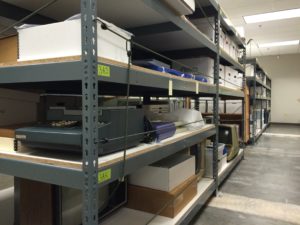
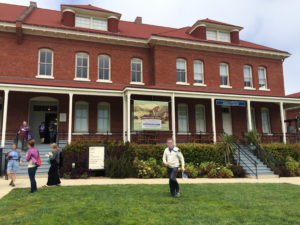
A Typical Day
Each day began at 8:15 in the morning and ran to around 5:00 in the afternoon and was divided into two sessions. Because of the nature of the institute, many sessions devoted a significant portion to lectures in order to cover the required content. There were ample opportunities, however, to discuss particular questions people had, to seek advice from one another, and to share practices and ideas already in place at participants’ home institutions.
Some of the most memorable parts of the institute were sessions which featured a practicum. One practicum was devoted to arranging and describing a collection that contained correspondence, financial records, disciplinary records of a ship’s crew, and documents about individual crew members. Groups of five surveyed the collection and made decisions about how to arrange the collection before writing a preliminary description of its scope and contents.
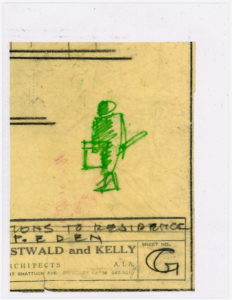 Another practicum was devoted to conservation. Participants had the opportunity to get hands-on experience doing some minor treatments such as flattening a crumpled document with a mist sprayer. Their finished treatments were then housed in polyester L-sleeves for storage.
Another practicum was devoted to conservation. Participants had the opportunity to get hands-on experience doing some minor treatments such as flattening a crumpled document with a mist sprayer. Their finished treatments were then housed in polyester L-sleeves for storage.
After the second session concluded, the majority of participants who were staying on campus for the duration of the WAI had dinner together in the SCU’s dining commons. Conversations about the day’s sessions continued but often steered toward lighter topics and gave everyone the opportunity to decompress before heading back to the dorm to spend another 2-3 hours reading in preparation for the next day.
Take Aways
Two weeks of intensive archival training will not turn a newcomer into an archivist overnight, but this institute provides a solid foundation and the basic skills someone needs to work in and with archives. WAI provides participants first and foremost with an understanding of the profession, from the development of modern archives in France as a by-product of the French Revolution to the code of ethics that governs the profession.
WAI is an invaluable experience. The intensive, residential format encourages attendees to focus their attention on all things archival and to draw connections between policies, procedures, and practices. Participants all agreed that well-defined policies and procedures about the archives’ mission, collecting, access, use of materials, and preservation as well as for processing collections in a timely manner are critical to the professional integrity of an archives and help ensure equitable, high-quality, consistent services.
In addition to gaining knowledge of archival theory and practices, participants at WAI develop new friendships within the community of archivists. These connections form the beginning of a support network that will continue to grow and also serves as points of first contact to which the 2016 WAI participants may turn when questions arise and they need advice.
